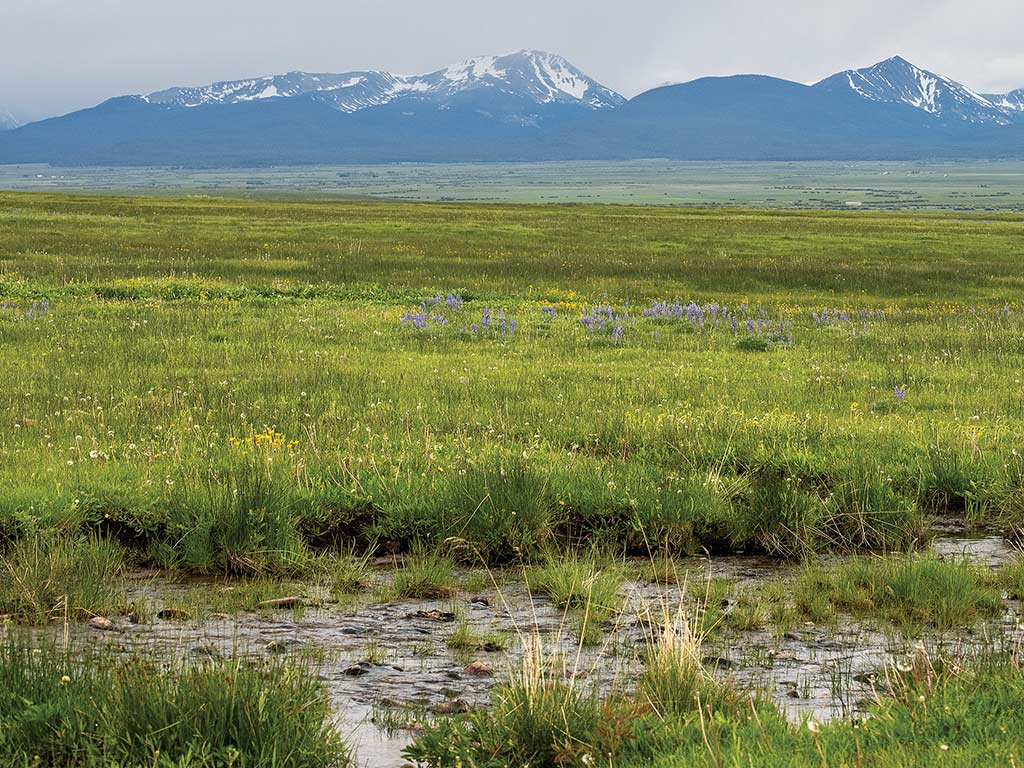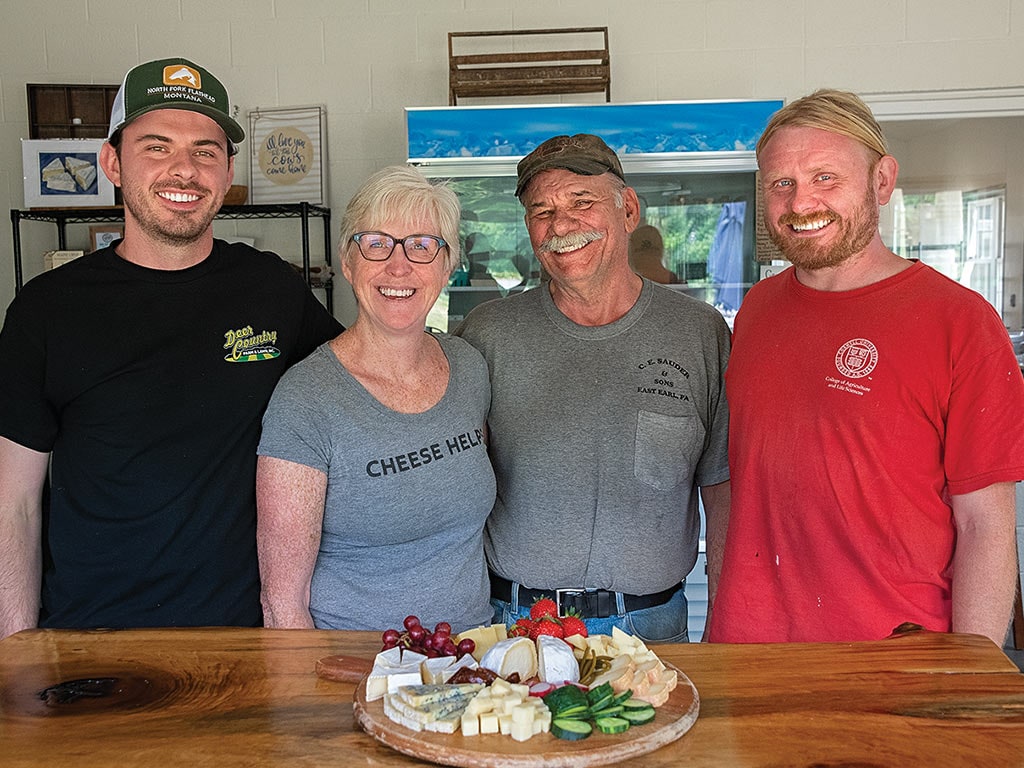Agriculture, Livestock/Poultry December 01, 2023
Good Cheeses Make Good Neighbors
.
It's easy to make friends when you bring cheese.
Ken Miller saw the future of dairy on a trip to big farms in the Southwest and realized it was not going to work for his family. Birchrun Hills Farm in Chester Hills, Pennsylvania, was already pinned in by swelling Philadelphia suburbs and steadily losing rented acreage. Miller and his wife Sue decided to stay small and embrace development head-on.
"To see some of the most fertile non-irrigated soil in the country go into housing and strip malls has been kind of heartbreaking, but it also does create an opportunity," says Ken, a former township supervisor in Chester County.
He and Sue realized that if they started selling directly, all those new neighbors could become customers. They could also become advocates for local agriculture.
"That's a tough thing for farmers to say, 'OK, we now have development. How do we welcome these people into our community, since they're definitely going to be here?'" says Sue. "I think our family has been good at that: talking to people and saying, 'let's have you invested in the local ag scene and support other family farms.'"
The Millers' secret weapon? Cheese. In 2006, Sue went to cheesemaking classes and launched the family into the cheese business with Birchrun Blue. It was an instant hit, snatched up by taste-making Philadelphia gourmet shop Di Bruno Bros. and a long list of fine restaurants.
The lineup grew with alpine-style Equinox, semi-soft Fat Cat, and Limburger-esque Red Cat. After raising funds through Kickstarter for a pasteurizer, Birchrun Hills Farm went into fromage blanc spreads. Feta and grill-ready halloumi round out the offerings, which have made the Millers popular with foodies.
"It's easy to make friends when you bring cheese!" Sue laughs.
Above. Breeding and feeding at Birchrun Hills Farm are focused on optimizing the milk fat/protein ratio for cheese. Jesse, Sue, Ken, and Randy Miller are the face of local agriculture to many customers in the Philadelphia suburbs.
Business eye. Entrepreneurship runs deep in the Miller family's DNA. When older son Randy was 14 years old, he launched a pastured veal program with the family's bull calves and started selling to a local Italian restaurant. He has integrated the veal operation into his duties as the herdsman for the family's young stock and 80 milking cows.
"It was a little difficult to convince people it was ethical to buy it," says Randy of the veal. "But at the end we already had the cheese customer base and I raised it the same way I raised the heifer calves, and there's that trust between the farmer and the consumer."
Younger son Jesse has also returned to the farm and taken on sales and marketing duties. Between shifts at farmers' markets in Philadelphia—25 miles from the farm—and local suburbs, he also helps Ken with feed production.
Conversation. Though the Millers have two coworkers who help with sales, Jesse likes to have a member of the family at farmers' markets, too.
"We always felt it's important to have an owner, one of the actual farmers, there," he says.
A big part of the conversation at market is how the cheeses change throughout the season.
"I think the beautiful thing is that we're not standardizing the milk like a commodity product," says Sue. "We are embracing it as it is, as the seasons change, as the herd is changing. And our customers embrace that."
The Millers have taken the conversation all the way back to the farm in a series of Friday happy hours that can draw 100 or more guests. Sharon Taylor of Le Garage Winery rolls up in her VW van/tasting room. The Millers sell cheese plates. Bands play. Connections are made.
"People are here purchasing the cheese, they see the cows, they look across the valley at fields that Ken's family has had a long relationship with. We tell everybody, 'that's where some of the feed for the cows comes from,'" says Sue.
"Then Randy feeds the cows and people stop and watch," she adds. "For us, that's important to build community, to have people understand, 'those cows are making the milk for this cheese.' Because it's often lost in translation for folks. People just don't think about cheese as an agricultural product.
"It's the same with beer and wine," Sue points out. "So we are here to tell that story for our family farm, but also for farmers who don't have anybody there meeting the consumer." ‡
Read More

AGRICULTURE, LIVESTOCK/POULTRY
One Fleece at a Time
Single-fleece marketing puts a premium spin on fiber.

AGRICULTURE, LIVESTOCK/POULTRY
Mountain Flow
Bending production to flow with ecological and market needs.




